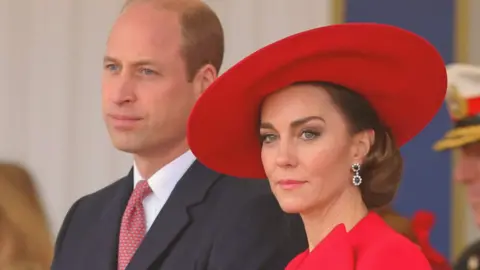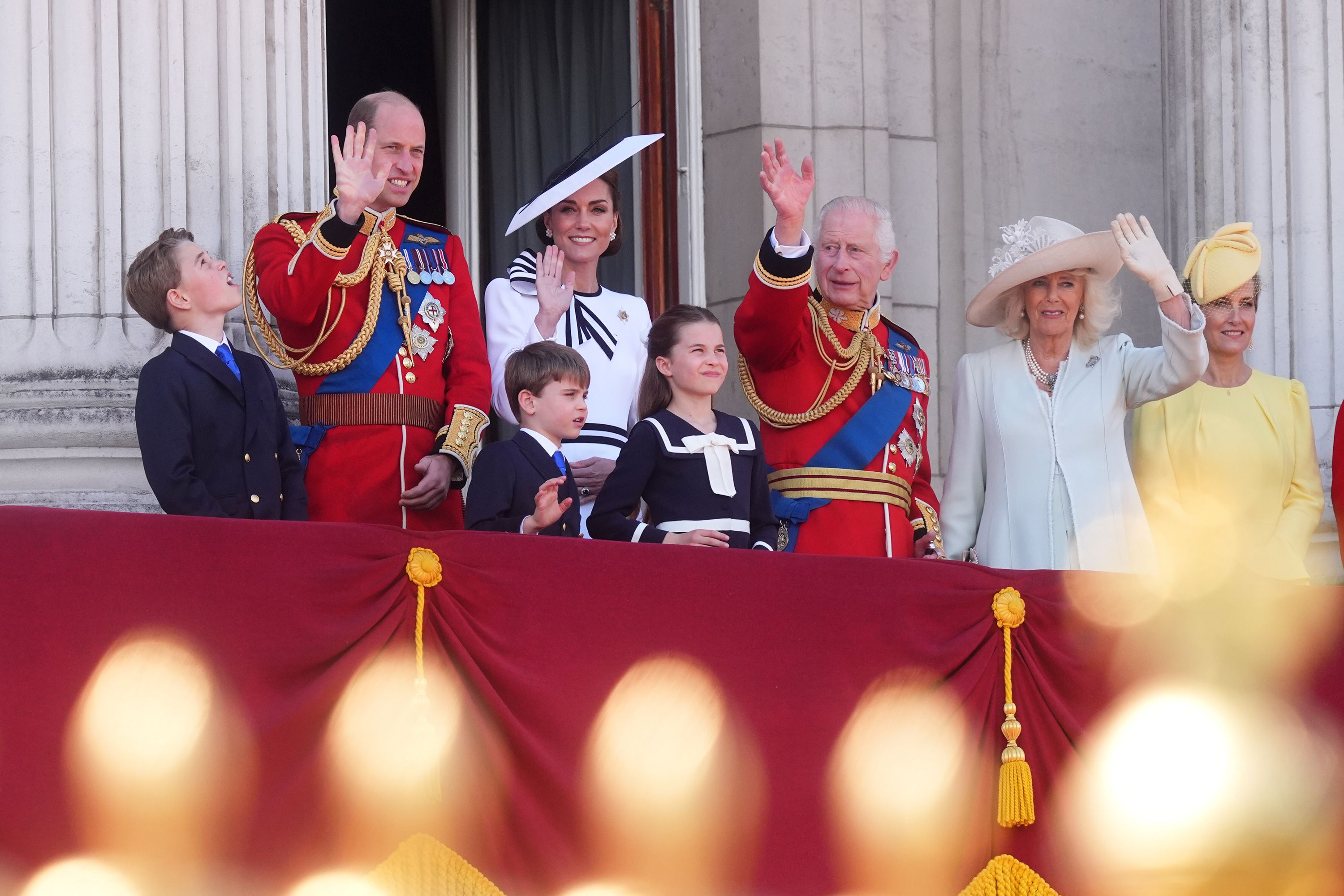As the reign of King Charles III transitions into a new era, the dynamics within the royal household are evolving, and Prince William’s future role and responsibilities are increasingly under the spotlight.
The past year has seen significant changes and challenges for the Prince of Wales, with the health of his wife, Princess Catherine, casting a long shadow over the royal family’s public appearances.
The nation breathed a collective sigh of relief when Princess Catherine made a rare public appearance on the Buckingham Palace balcony for the Trooping the Colour parade.
Despite ongoing concerns about her health, Catherine presented a picture of poise and perfection, embodying the royal duty and elegance expected of her.

This appearance was a welcome reprieve, given the considerable media speculation surrounding her well-being and the future of the monarchy.
Recent insights from palace staff have painted a picture of a royal household struggling with a sense of flatness in Catherine’s absence. With her absence felt deeply, she is seen as the Crown’s best hope, blending duty, beauty, and a touching vulnerability reminiscent of Prince William’s late mother, Princess Diana. This perception underscores the importance of her role within the monarchy.
As the Prince of Wales navigates these personal and public challenges, questions have arisen about the financial aspects of his role. Critics have scrutinized the high salaries of the royal couple, questioning whether their compensation is justified given their comparatively fewer public engagements compared to other senior royals. This scrutiny highlights the broader debate about the value and cost of royal duties in contemporary Britain.

In a move reflecting his commitment to financial responsibility, Prince William has been taking a closer look at the royal payroll. According to sources, the 42-year-old has been meticulously reviewing how funds are allocated across the estate, which generates income from residential and commercial rents across 20 counties in England. This newfound focus on financial oversight is part of William’s effort to demonstrate a responsible approach to managing the royal finances.
One notable decision in this regard was William’s choice to cut Annabelle Elliot, Queen Camilla’s sister, from the Duchy of Cornwall’s payroll. This move has cast a spotlight on the strained relationship between William and his stepmother’s family. Known for maintaining a distance from the Parker Bowles clan, William’s decision to terminate Elliot’s role reveals underlying tensions that are rarely exposed to the public.
Insiders suggest that William’s relationship with Camilla’s children, Tom and Laura, remains strained. Tom Parker Bowles, in particular, has been a subject of contention due to his previous controversial behavior, including a 1999 incident where he was caught using cocaine by an undercover reporter. Such issues have only intensified the existing rift between William and the Parker Bowles family.

The legacy of Princess Diana, who viewed Camilla as the other woman in her marriage to Charles, continues to influence William’s interactions with his stepmother. Despite the potential for friction, it appears King Charles is focused on broader issues, as noted by a friend of the King and Camilla. “Charles has bigger concerns than Annabelle’s job prospects,” the friend remarked, indicating that the decision aligns with William’s strategic vision for the Duchy of Cornwall.
The decision not to renew Annabelle Elliot’s contract, effective March 31, 2024, was characterized in a recent annual report as part of the evolving business landscape under William’s management. Despite this, the choice has sparked debate about whether favoritism is at play, particularly as William has appointed a close friend, William Van Cotum, to a senior advisory role.
:max_bytes(150000):strip_icc():focal(999x0:1001x2)/prince-william-UEFA-euro-2024-062024-6-b25e092ce3fb43b49f57e76815ce584c.jpg)
Financial figures reveal that Prince William’s salary for 2023 was approximately $130 million. In contrast, Prince Harry is set to receive $8.5 million from a $90 million trust fund left by their late grandmother, the Queen Mother. This discrepancy has fueled tensions, with William and his wife reportedly harboring reservations about Harry’s financial gains, further complicating their strained relationship.
As the royal household continues to adapt to these changes, the shifting dynamics and financial decisions under Prince William’s stewardship are set to play a crucial role in shaping the monarchy’s future.